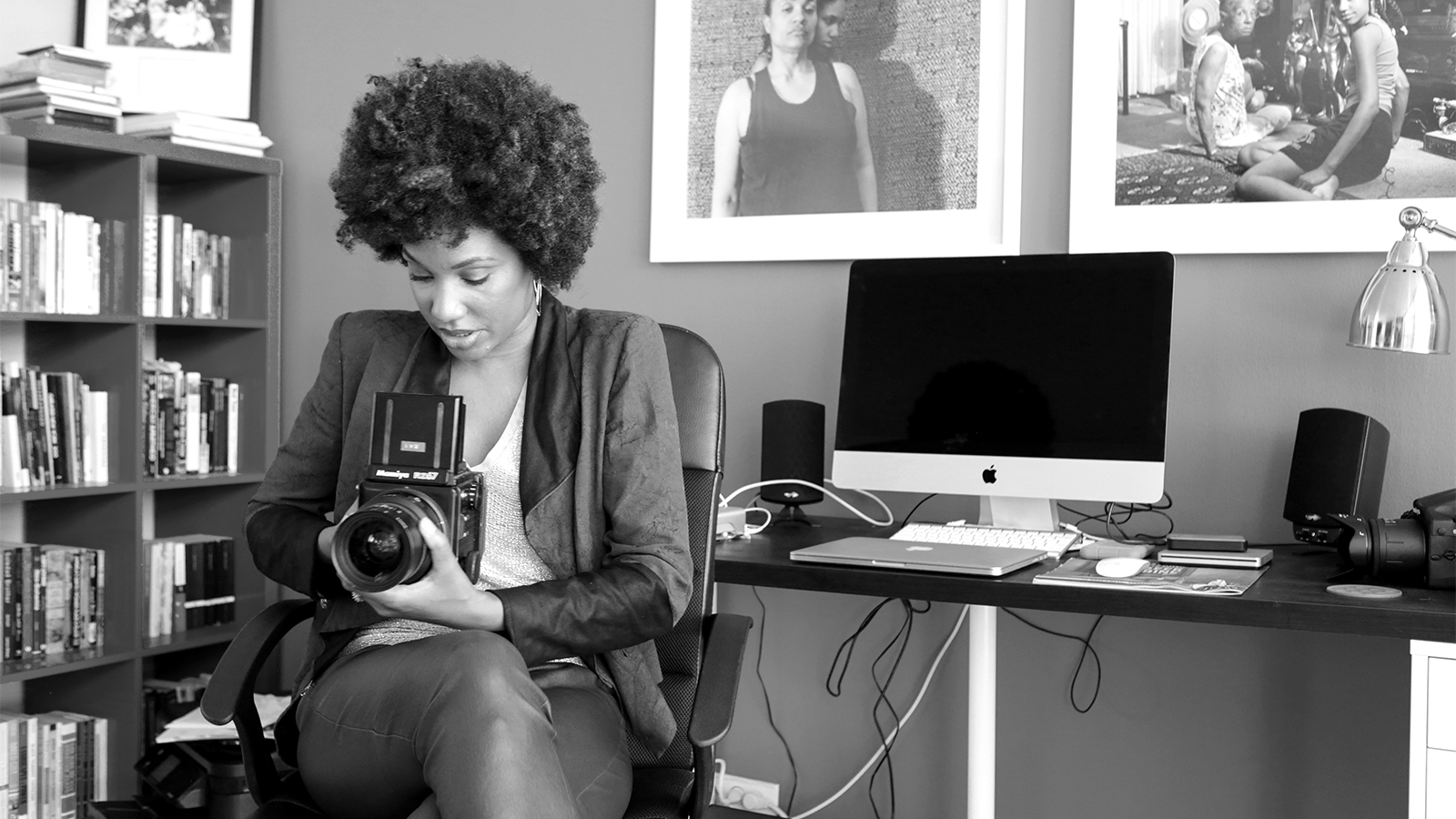Latoya Ruby Frazier, recent winner of a MacArthur “genius” grant, is best known for using photography to help people tell stories about the harsh inequities they endure. Frazier has now turned her camera to Flint, Michigan, publishing a series about the water crisis for Elle Magazine.
In a short film by Frazier titled Flint is Family, Shea Cobb, a 32-year-old mother and lifelong Flint resident, explains how ordinary tasks like brushing teeth and planning dinner have been complicated by lead-poisoned water. A singer, songwriter, and poet, Cobb patches together a series of jobs — bus driving and hair braiding — to make ends meet for her family. It’s a job made more arduous when the water is poisoned. “It’s the hustle that gets us through,” Cobb says.
That hustle might get harder starting next week, when the Federal Emergency Management Agency’s emergency declaration for Flint comes to an end. That means the government will no longer help pay for bottled water and water filters. FEMA is covering 75 percent of the cost until August 14; Michigan is supposed to pick up the tab once federal assistance runs out.
[protected-iframe id=”d2ed6b781a1f57ae901c9d20174dedb3-5104299-61503516″ width=”660″ height=”372″ info=”//player.hearstdigitalstudios.com/57a5205abbddbd2c1a5f0ee8?width=100%25&autostart=0&aratio=16:9″ frameborder=”0″]




